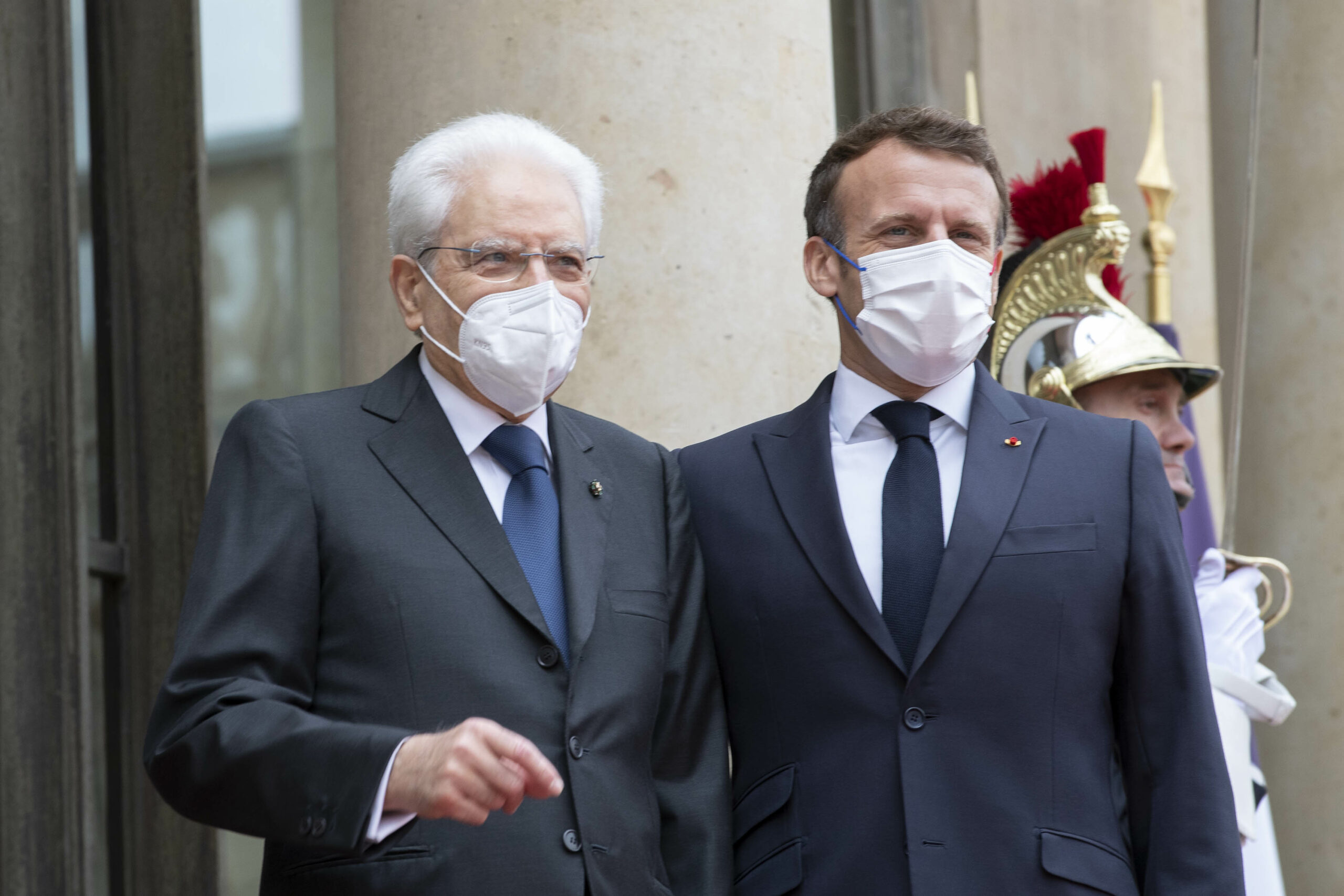Who supports (and who does not) for the Quirinal Treaty between Italy and France

The article by Tino Oldani on ItaliaOggi
The readers of ItaliaOggi know that this newspaper has sided several times against the so-called Treaty of the Quirinale between Italy and France. In an editorial a year and a half ago (February 19, 2020), the director Pierluigi Magnaschi wrote that the treaty, as it was conceived, "would reduce Italy to a Macron page". And Carlo Pelanda, authoritative analyst of international scenarios, reiterated the same opposition several times, to the point of arguing (2 July 2021) that "this treaty must not be made" as "the most profitable international position of Italy is an alliance strengthened with the United States, with a balanced posture between France and Germany, collaborative with both and which excludes privileged relations with one of the two ». An opposition motivated not by prejudices, but by concrete facts.
Suffice it to recall that France, world champion of sovereignty, just as the drafts of this treaty of friendship were being discussed, messed up the merger between Fincantieri and the bankrupt French Atlantic Shipyards in the shipbuilding sector, a worldwide operation. in which the Italian group would have taken the reins of command. This was unacceptable for Emmanuel Macron, who saw it as a disgrace for the alleged French grandeur. And the Italian government at the time, led by Paolo Gentiloni, Pd, in favor of the Quirinale Treaty from the beginning, whose preparations date back to 2018? Shut up and fly.
For the record, it should be remembered that the yellow-green government (M5s-Lega) of Giuseppe Conte, which took over from that of Gentiloni, among the first moves, placed the draft of the Quirinale Treaty in the attic. It was the era of the Yellow Vests in France and of Luigi Di Maio, deputy premier, who paid them a personal visit, causing a diplomatic crisis with Paris, who withdrew the ambassador from Rome. A crisis that returned only thanks to the mediation of the Quirinale, which was followed by the tried and tested grillino transformism, which has in Conte and Di Maio the greatest interpreters: the first ready to ally with anyone in order not to give up the cadrega, the second yesterday hostile to Macron is now an ally, ready to kneel.
Despite these precedents, in recent weeks the signing of the Quirinale Treaty now seems close, the key political event of next autumn. Confirmation of the change of pace was given by the President of the Republic himself, Sergio Mattarella, on the occasion of his state visit to Paris on July 5-6, the first abroad after the pandemic. A visit that not only put a tombstone on diplomatic incidents with Macron, but confirmed, with a speech by Mattarella at the Sorbonne, Italy's willingness to sign the treaty within the year.
According to Politico , who dedicated an extensive reconstruction to this change of pace, the replacement of the Conte 2 government with that of Mario Draghi, one of the most respected and authoritative figures in Europe after his impeccable management of the Bank, would have contributed greatly. Central European. It is no mystery that Draghi is perceived as the only one in Europe capable of garnering the leadership of Angela Merkel. And for Macron, allying himself with Draghi has become a primary objective of image, to be spent to his advantage in the race for next year's Elysée. Hence Politico's conviction that "a new power couple is vying for leadership in Europe, only this time half are not German".
Waiting to know who Merkel's successor will be, and aware that Armin Laschet, CDU, the highest-rated candidate, will need time to conquer a European leadership, Macron and Draghi "are stepping forward to fill a void", obviously with different styles, but with important common goals in Europe. And the Quirinale Treaty would serve precisely this purpose.
"Both are former investment bankers" who see a bolder and faster European Union as an antidote to domestic woes, "writes Politico . And the common agenda, if indeed the Quirinal Treaty is modeled like the Elysée Treaty of 1963 that gave way to the Franco-German pact and the obligation of prior consultations between the two countries, is expected to have the greatest impact precisely on the future of the EU, especially on the rules on public spending (3% deficit-GDP, 60% debt-GDP), which must be reviewed by next year. Mattarella, during his visit to Paris, invited the EU to continue "issuing common debt". Draghi then echoed that appeal, in harmony with Macron, both convinced that "the EU fiscal framework is too binding". And the French Minister of Economy, Bruno Le Maire, has repeatedly asked that the EU make "the common debt for recovery remain", that is, that the Recovery Plan is not a one-off, as Germany and its frugal allies claim.
Although unwelcome to the latter, a new axis for the management of the economy is being established in Europe, with Italy and France as leaders. This was seen in the ECB, where an important innovation was approved by a majority (with Germany's vote against), asymmetric inflation (i.e., even above 2%), the premise for a further extension of accommodative monetary policy , to support the post-pandemic recovery. Repeating the same policy in Brussels will be less easy, given that unanimity is needed in the EU to change the treaties. But politics is the art of the possible, and the Quirinal Treaty, if written well, with no margin of abuse by France over Italy, and with a competent manager like Draghi, could fully fall into it, without making Italy a pageboy of France, as Magnaschi and Pelanda fear.
Obviously, since the text is not yet known, the conditional is a must, ready to change my mind.
Article published on italiaoggi.it
This is a machine translation from Italian language of a post published on Start Magazine at the URL https://www.startmag.it/mondo/chi-tifa-e-chi-no-per-il-trattato-del-quirinale-tra-italia-e-francia/ on Sun, 01 Aug 2021 06:23:26 +0000.
